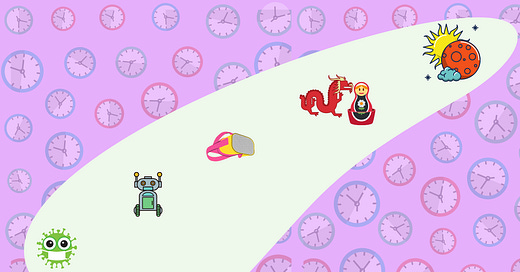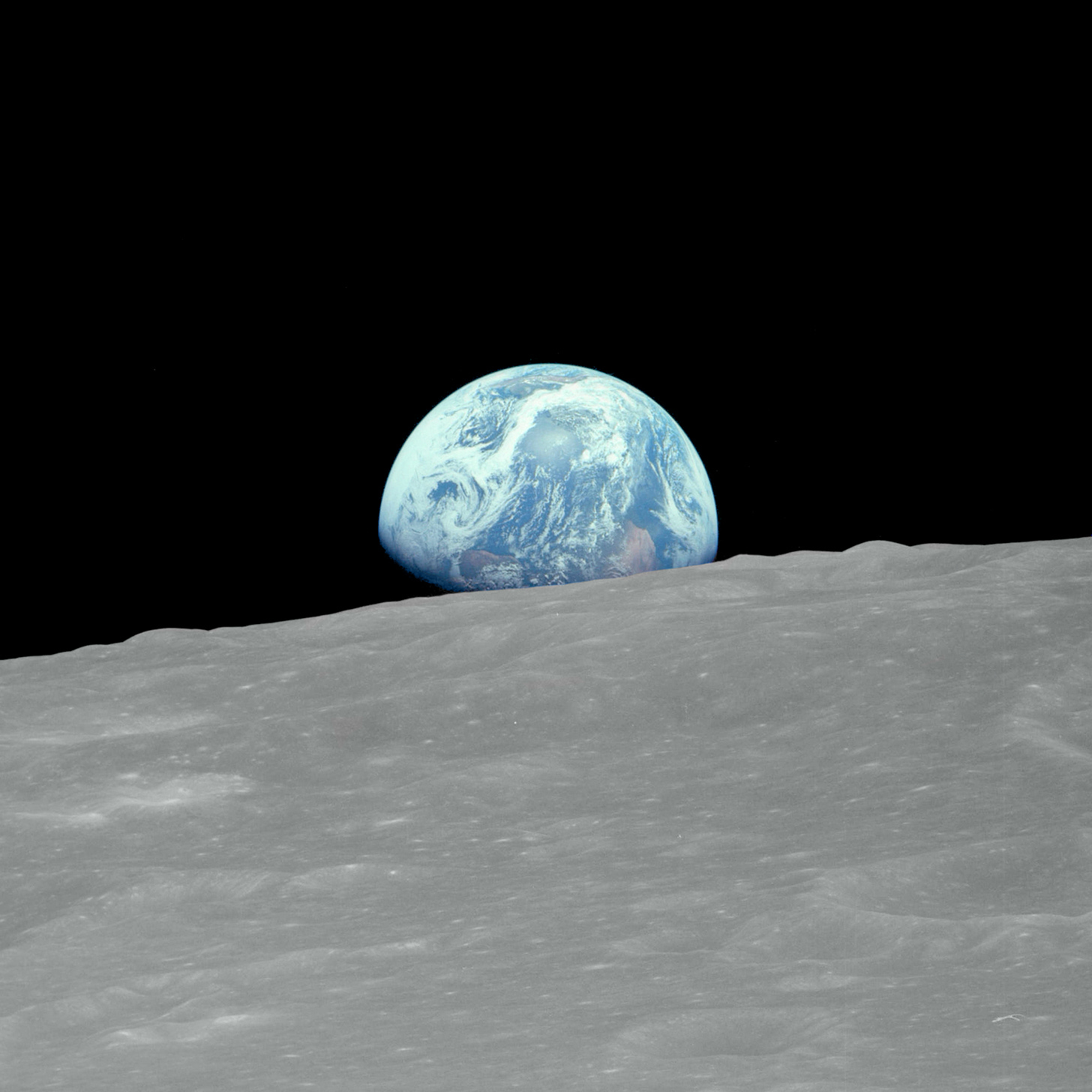I hope you’ve been enjoying these posts - both about the crisis in Ukraine and the regular updates on the Interverse. I am traveling tomorrow and will be on the road for almost a month. I am going to take that time to reflect upon the new reality we are in, willy nilly. This newsletter will restart in early April. Until then:
I started this regime change series by saying that the pandemic is a mirror to our broken world, that it will intensify and interconnect existing trends. It’s showing how everything is connected.
No one could have predicted the Corona pandemic in its details, we can confidently say humanity has entered a new era in which everything from the cellular to the atmospheric is both the constant backdrop and occasionally the lead actor in human affairs.
While it’s important to single out specific ‘wicked problems’ such as the war in Ukraine, it’s equally important to recognize the planetary nature of the human condition from now onward. I wrote the next section’s contents a year ago and it’s sadly truer today:
Trust and Society
Speculation: With the two classes living in alternate realities (and not just alternate economies), mistrust is going to increase.
People with college degrees live longer lives, have securer careers and have more stable families with lower divorce rates and fewer children born in single parent families. Those without access to the knowledge economy are being ruined at work and at home.
Robots don’t get sick, and so it makes it even more compelling to replace low wage workers with machines. Of course, these new developments will hurt workers of color more than working class white people, but it’s also accelerating the conversion of working class white people into a permanent under class.
The lack of masks, the reluctance to vaccinate etc are forms of resistance, and shows that retreat into a reason denying, reactionary response is still struggle whether one agrees with the cause or not.
(2022 now) The war in Ukraine has taken this turbulence to the next level. For one, it’s demonstrated that the West can come together and destroy a large economy overnight.

That shows the power of the dollar in the financial system:

Russia isn’t even able to sell its crude, which is its primary source of revenue

Adam Tooze: The freezing of Russia’s central bank reserves means crossing the Rubicon. It brings conflict to the heart of the international monetary system.
Putin clearly feels that these sanctions (on him personally as well) are war by other means
Putin underscored that logic on Sunday with his nuclear saber rattling. That is not aimed at Ukraine. It is aimed at Europe and the US who have, from Russia’s point of view, made themselves party to the conflict.
Finance depends on trust; not the emotion, but the mechanisms that hold the monetary system together. As of these sanctions, that trust is dead, for it’s clear that those who run the system will intervene as they see fit. They probably made the right decision in tough circumstances, but it’s not without consequences, such as:
Major investments in cryptocurrency by countries that want to move away from the dollar as quickly as possible. China for sure.
A move towards autarky, i.e., a self-sufficient economy, or more broadly, an economy operating within one’s zone of influence. Here too China comes to mind, but perhaps the West might go in this direction as well to reduce its dependence on China.

Speaking on Bloomberg’s Odd Lots podcast, the global head of short-term interest rate strategy at Credit Suisse AG noted that wars tend to turn into major junctures for global currencies, and with Russia losing access to its foreign currency reserves, a message has been sent to all countries that they can’t count on these money stashes to actually be theirs in the event of tension. As such, it may make less and less sense for global reserve managers to hold dollars for safety, given that they could be taken away right when they’re most needed.
These worries will obviously affect China, but they may also impact India and Brazil since both are increasingly authoritarian and independently, might legitimately worry that an expansionist West could come after them one day. And King Kong (climate change) has been stuffed back into the closet as a result of last week’s activities, but the news isn’t good at all. Miltarism will:
Take attention, money and energy away from climate change.
Decrease the likelihood of global cooperation
Of course, it’s not one or the other: both militarism and climate change are disasters and we have to address them both. But do we have the will to do so? Kate Aronoff:
For a brief moment last autumn, the world was focused on the climate crisis for the U.N. climate talks in Glasgow, COP26. Now that momentum appears to have faded, replaced by more ostensibly immediate concerns about rising fuel prices and a war that could send them even higher.
Preliminary Conclusion
We just saw an amazing act of international collaboration, i.e., the financial war on Russia that was orchestrated in a matter of days (or months, depending on whom you ask). But that rapid response will have its own series of unexpected consequences, including making the world world less cooperative, but it also shows the existing power of the advanced economies to act quickly and decisively. That same speed and decision was on display during the pandemic with the development of the vaccine.
Will we ever show such speed for climate change and other planetary crises? Will they become real before its too late? I don’t know.
At the same time, the contradictions within this system are also becoming apparent, i.e., the structural features that prevent the system from settling into a new equilibrium. What was termed the “End of History” with the discovery of the final economic and political system turned out to be an interim phase between regime changes.
Finally, whether the Metaverse becomes a thing or not, the Interverse is already here. We are now conducting urban warfare in the planetary city, immersed in media from the other side of the world, and finding ever new ways to pay each other or cut off the possibility of doing so.
Fasten your seat belts!
Earthworm, not Earthrise
The prominent Ukrainian-American geneticist Theodosius Dobzhansky once said:
Nothing in biology makes sense except in the light of evolution
Today, we can make an analogous claim in the context of human affairs including pandemics, wars and climate change:
Nothing in society makes sense except in the light of the planet.
The earth is the arena in which we play all our games. But what is this world which is but a stage? Most of you must have seen this famous photo of the earth, “Earthrise,” taken from the moon:
It inspires many emotions in people. Some feel awe, some feel inspired and others want to take action to protect our home. All good but I’m now ready to say this is the wrong picture of the world. In fact, the earth can never be pictured, no more than you can see yourself.
The earth from the earth can never be beheld, it is not an object of our senses, no more than the sea can be beheld by a fish. Which is why the earth is both the home of tragedy and of celebration. And until today, it could not be thought from the inside, like we can do with societies and economies. That shift from societal to the planetary is the biggest shift of our time.
More when I come back.










